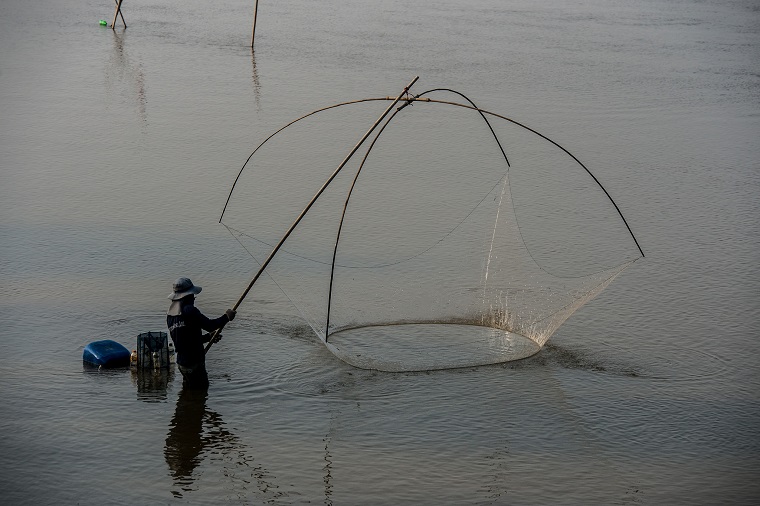
3 Ways to Preserve the Natural Wonders of the Mekong
Monster Fish biologist spearheads a research project on how to sustainably manage one of the world’s most important ecosystems.
A team of researchers led by National Geographic fellow Zeb Hogan of Monster Fish fame is working with the Government of Cambodia to preserve and protect the Mekong River and its ecosystem, which are vital to the economic and social health of Southeast Asia.
Launched in February 2017, the 5-year research project, called The Wonders of the Mekong: A Foundation for Sustainable Development and Resilience, is supported by a USAID grant and involves the University of Nevada Global Water Center, Inland Fisheries Research, and Development Institute of Cambodia.
Science-based conservation
The Wonders of the Mekong project is designed to create more awareness of the Mekong River. It will undertake conservation efforts in three ways:
- conduct applied, interdisciplinary research to gain a better understanding of the Mekong River ecosystem;
- build capacity for the sustainable management of the Mekong system, taking into account the impact of climate change; and
- promote the economic, ecological, and cultural values of biodiversity and ecosystem services associated with the Lower Mekong River Basin through outreach and communications activities.
Using social media and other forms of mass media, the project will share stories about the way people use and benefit from the Mekong River and its tributaries. It will build institutional partnerships and develop educational materials to advance research on the importance of the Mekong River ecosystem.
According to a National Geographic article, Nevada-based biologist Hogan first visited the Mekong as a Fulbright scholar.
Over the years, his research in the region focused on migratory fish, and he became an expert on a “monster fish” from the Mekong, a giant catfish that has been recorded to grow up to 3 meters and weigh nearly 300 kilos. Hogan said the Mekong research team will use its findings to develop a model of effective stewardship to help protect vulnerable communities in the basin who depend on the river for ecosystem services.
A most productive ecosystem
The Mekong River Basin is one of the world’s most diverse and productive ecosystems. It is home to more than 1,300 species of fish as well as several endangered and vulnerable wildlife species. The Greater Mekong Subregion Atlas of the Environment estimates that the Mekong River Basin supports a fishery of about 2.3 million tons per year valued at some $2 billion.
There are about 400 deep pools in the Mekong where fish populations gather in the dry season. Annual fish yields of the Mekong however have come under pressure from human activities, such as overfishing, fragmentation and reduction of floodplains, and infrastructure development.
Roughly 85% of the more than 70 million people living in the basin rely on agriculture, forestry, and fishing for livelihood.
Sustaining lives and economies
The Mekong Delta begins in Cambodia’s capital Phnom Penh, where the river divides into its two main distributaries, the Mekong and the Bassac. Tonle Sap, Southeast Asia’s largest inland lake and “the beating heart of Cambodia,” forms part of a unique hydrological system in the Mekong River system.
Aside from Cambodia, the 4,909-kilometer long Mekong River runs through five other countries: the People’s Republic of China, the Lao People’s Democratic Republic, Myanmar, Thailand, and Viet Nam. Together, these countries have embarked on several initiatives under the Greater Mekong Subregion program to protect and enhance their natural capital with the vision of a poverty-free and ecologically rich subregion.
The governments of Cambodia, Lao PDR, Thailand and Viet Nam also work with the Mekong River Commission to jointly manage shared water resources and sustainably develop the Mekong River.
“Conservation is important to all of us as healthy natural systems provide goods and services that sustain life and improve human wellbeing,” said USAID Mission Director Polly Dunford at the project launch in Phnom Penh. “Working together, through the Wonders of the Mekong partnership, we can maintain the ecological, cultural, and economic integrity of the most important river and delta system in the world.”
